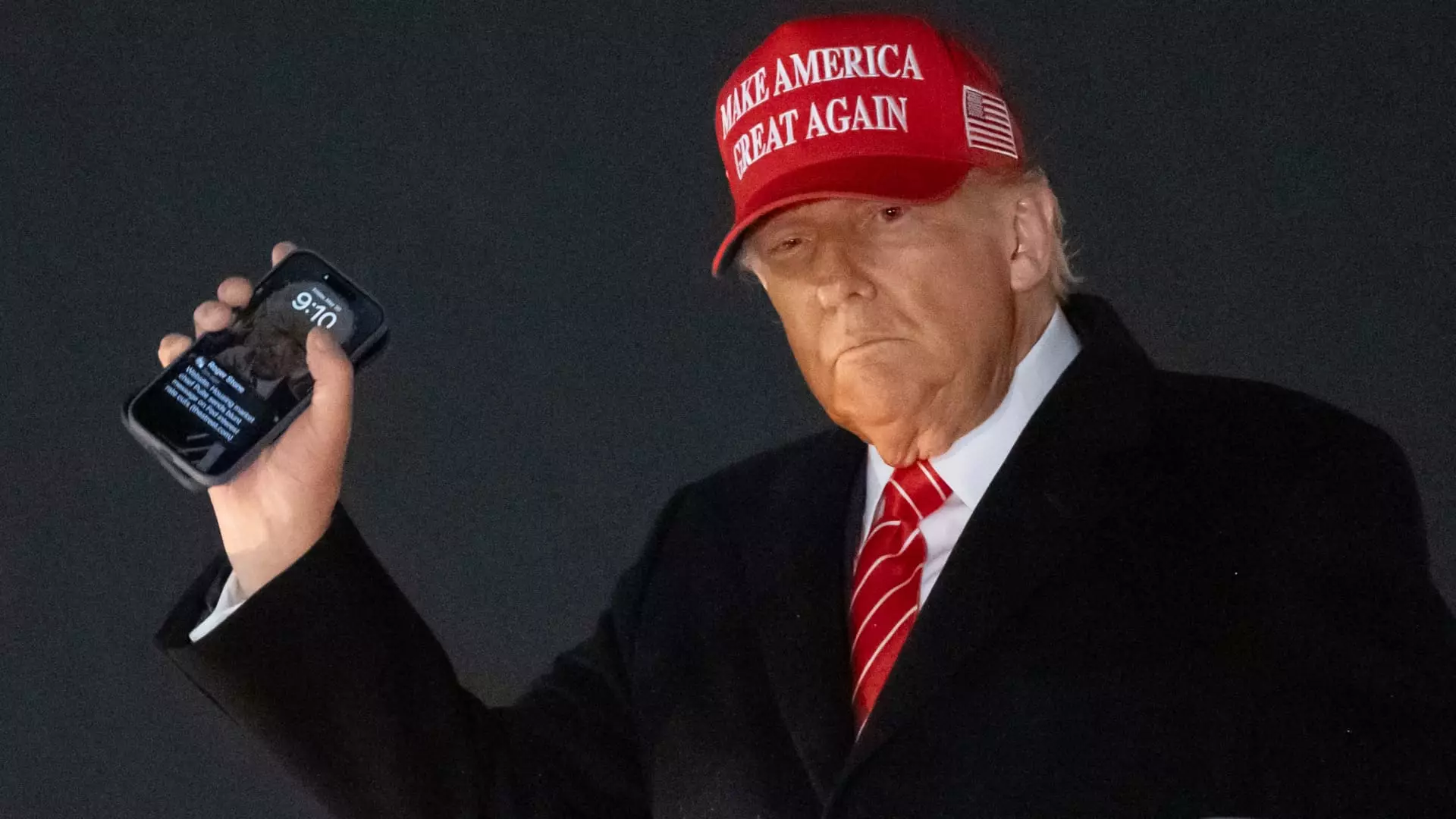The recent launch of the Trump Mobile service and the T1 smartphone represents not just another business endeavor by the Trump Organization but also a striking intersection of commerce and politics. Priced at $499, these products are poised to attract a niche market that largely overlaps with Trump’s ardent supporters. This politically charged foray into telecommunications, however, brings with it a slew of ethical concerns and critiques that demand examination. At its core, the venture is striking not merely for its innovative positioning but for its flagrant disregard for the potential consequences of intertwining politics with consumer goods.
Trump Mobile offers a plan costing $47.45 per month, which includes unlimited talk, text, data, roadside assistance, and access to “Telehealth and Pharmacy Benefits.” While such offerings may seem appealing on the surface, they become less enticing when viewed through a comparative lens. Many major telecommunications companies offer similar services at significantly lower rates—Visible and Mint Mobile, for example, provide unlimited plans that cost $25 and $30 monthly, respectively. Herein lies an invitation for analysis: why would consumers choose the more expensive option? The answer appears to hinge not merely on functionality but on branding; Trump is trading on his persona, and for many, that trumps price considerations.
Ethical Quandaries and a Questionable Business Model
But this venture raises pressing ethical questions. The phrase “the end justifies the means” could not be more pronounced in this situation. Trump’s previous licensing agreements and merchandise strategies have faced sharp criticisms for prioritizing profit over principled governance. By leaning heavily on the allure of his celebrity, Trump seems to be capitalizing on a loyal voter base that may be more inclined to support his ventures out of political loyalty rather than consumer sense. The website even explicitly states that the Trump Organization is not involved in the actual design or distribution of Trump Mobile’s products, shielding itself from direct accountability.
This detachment magnifies the questionable nature of the venture. To sell a product under one’s name and then disclaim responsibility for its quality sends a mixed message to consumers. It appears as though Trump is utilizing his political status as collateral for business success, potentially exploiting his supporters rather than providing them with genuinely beneficial products. This is exemplified by the fact that Trump reported making more than $8 million in 2024 from various licensing deals—a figure that raises eyebrows but does not inspire confidence in the integrity of these business practices.
A Market for Branding Over Quality
The T1 smartphone itself embodies a peculiar marketing strategy. With a gold-colored metal case engraved with the American flag, the design is clearly intended to resonate with nationalistic fervor. Yet, the underlying question remains: does a flashy exterior compensate for the real-world functionalities that consumers might expect? With specs such as a 6.8-inch AMOLED screen and considerable internal storage, the T1 does not fall short of contemporary standards on the surface. However, in a marketplace saturated with well-established competitors, will the symbolism be sufficiently compelling to sway consumer choices, or will product performance remain the most critical factor?
Moreover, the provision of U.S.-based customer service adds another layer of marketing prowess. However, when questioned about the specifics of this call center, representatives diverted inquiries, citing security concerns. This lack of transparency raises red flags about the commitment to genuine customer care, further amplifying doubts surrounding this ambitious business venture.
The Broader Implications on Political Consumerism
In a broader context, Trump Mobile signifies a worrying trend in merging political identity with consumer behavior. The ascent of political consumerism blurs the line between ideology and day-to-day choices, leading to a culture where loyalty to a figure can overshadow the innate need for quality and value in purchases. For many, aligning with Trump’s brand may evoke feelings of belonging; for others, it reveals a disturbing capitulation to celebrity culture where the merit of a product is secondary to its association with a polarizing figure.
As the landscape of American politics continues to intertwine with commercial interests, the implications of ventures like Trump Mobile are profound. They force consumers to confront uncomfortable realities about influence and accountability in an age where personal integrity and corporate branding become increasingly entangled. The move towards a politically branded telecommunications service may result in a disillusioned consumer base that suffers from the fallout of prioritizing ideology over authentic business practices—a precarious position indeed.

Leave a Reply